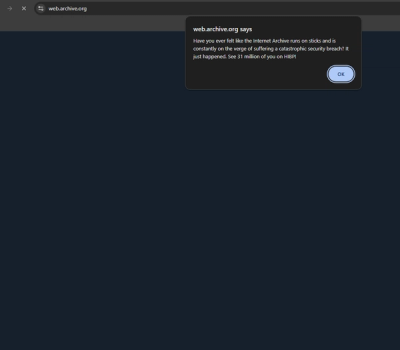CouchBackup

_____ _ ______ _
/ __ \ | | | ___ \ | |
| / \/ ___ _ _ ___| |__ | |_/ / __ _ ___| | ___ _ _ __
| | / _ \| | | |/ __| '_ \| ___ \/ _` |/ __| |/ / | | | '_ \
| \__/\ (_) | |_| | (__| | | | |_/ / (_| | (__| <| |_| | |_) |
\____/\___/ \__,_|\___|_| |_\____/ \__,_|\___|_|\_\\__,_| .__/
| |
|_|
CouchBackup is a command-line utility that allows a Cloudant or CouchDB database to be backed up to a text file.
It comes with a companion command-line utility that can restore the backed up data.
N.B.
- couchbackup does not do CouchDB replication as such, it simply streams through a database's
_changes feed, and uses POST /db/_bulk_get to fetch the documents, storing the documents it finds on disk. - couchbackup does not backup attachments, it is recommended to store attachments directly in an object store.
Installation
To install use npm:
npm install -g @cloudant/couchbackup
The minimum required Node.js version is 4.8.2.
Usage
Either environment variables or command-line options can be used to specify the URL of the CouchDB or Cloudant instance, and the database to work with.
The URL
To define the URL of the CouchDB instance set the COUCH_URL environment variable:
export COUCH_URL=http://localhost:5984
or
export COUCH_URL=https://myusername:mypassword@myhost.cloudant.com
Alternatively we can use the --url command-line parameter.
The Database name
To define the name of the database to backup or restore, set the COUCH_DATABASE environment variable:
export COUCH_DATABASE=animaldb
Alternatively we can use the --db command-line parameter
Backup
To backup a database to a text file, use the couchbackup command, directing the output to a text file:
couchbackup > backup.txt
Another way of backing up is to set the COUCH_URL environment variable only and supply the database name on the command-line:
couchbackup --db animaldb > animaldb.txt
Logging & resuming backups
You may also create a log file which records the progress of the backup with the --log parameter e.g.
couchbackup --db animaldb --log animaldb.log > animaldb.txt
This log file can be used to resume backups from where you left off with --resume true:
couchbackup --db animaldb --log animaldb.log --resume true >> animaldb.txt
You may also specify the name of the output file, rather than directing the backup data to stdout:
couchbackup --db animaldb --log animaldb.log --resume true --output animaldb.txt
Restore
Now we have our backup text file, we can restore it to an existing database using the couchrestore:
cat animaldb.txt | couchrestore
or specifying the database name on the command-line:
cat animaldb.txt | couchrestore --db animaldb2
Compressed backups
If we want to compress the backup data before storing to disk, we can pipe the contents through gzip:
couchbackup --db animaldb | gzip > animaldb.txt.gz
and restore the file with:
cat animaldb.tar.gz | gunzip | couchdbrestore --db animaldb2
What's in a backup file?
A backup file is a text file where each line contains a JSON encoded array of up to buffer-size objects e.g.
[{"a":1},{"a":2}...]
[{"a":501},{"a":502}...]
What's in a log file?
A log file contains a line:
- for every batch of document ids that need to be fetched e.g.
:t batch56 [{"id":"a"},{"id":"b"}] - for every batch that has been fetched and stored e.g.
:d batch56 - to indicate that the changes feed was fully consumed e.g.
:changes_complete
What is shallow mode?
When you run couchbackup with --mode shallow a simpler backup is performed, only backing up the winning revisions
of the database. No revision tokens are saved and any conflicting revisions are ignored. This is a faster, but less
complete backup. Shallow backups cannot be resumed because they do not produce a log file.
Why use CouchBackup?
The easiest way to backup a CouchDB database is to copy the ".couch" file. This is fine on a single-node instance, but when running multi-node
Cloudant or using CouchDB 2.0 or greater, the ".couch" file only contains a single shard of data. This utility allows simple backups of CouchDB
or Cloudant database using the HTTP API.
This tool can be used to script the backup of your databases. Move the backup and log files to cheap Object Storage so that you have multiple copies of your precious data.
Options reference
Environment variables
COUCH_URL - the URL of the CouchDB/Cloudant server e.g. http://127.0.0.1:5984COUCH_DATABASE - the name of the database to act upon e.g. mydb (default test)COUCH_PARALLELISM - the number of HTTP requests to perform in parallel when restoring a backup e.g. 10 (Default 5)COUCH_BUFFER_SIZE - the number of documents fetched and restored at once e.g. 100 (default 500)COUCH_LOG - the file to store logging information during backupCOUCH_RESUME - if true, resumes a previous backup from its last known positionCOUCH_OUTPUT - the file name to store the backup data (defaults to stdout)COUCH_MODE - if shallow, only a superficial backup is done, ignoring conflicts and revision tokens. Defaults to full - a full backup.DEBUG - if set to couchbackup, debug messages will be sent to stderr during a backup or restore process
Command-line paramters
--url - same as COUCH_URL environment variable--db - same as COUCH_DATABASE--parallelism - same as COUCH_PARALLELISM--buffer-size - same as COUCH_BUFFER_SIZE--log - same as COUCH_LOG--resume - same as COUCH_RESUME--output - same as COUCH_OUTPUT--mode - same as COUCH_MODE
Using programmatically
You can use couchbackup programatically. First install
couchbackup into your project with npm install --save @cloudant/couchbackup.
Then you can import the library into your code:
const couchbackup = require('@cloudant/couchbackup');
The library exports two main functions:
backup - backup from a database to a writable stream.restore - restore from a readable stream to a database.
Examples
See the examples folder for example scripts showing how to
use the library.
Backup
The backup function takes a source database URL, a stream to write to,
backup options and a callback for completion.
backup: function(srcUrl, targetStream, opts, callback) { }
The opts dictionary can contain values which map to a subset of the
environment variables defined above. Those related to the source and
target locations are not required.
parallelism: see COUCH_PARALLELISM.bufferSize: see COUCH_BUFFER_SIZE.log: see COUCH_LOG.resume: see COUCH_RESUME.mode: see COUCH_MODE.
The callback has the standard err, data parameters and is called when
the backup completes or fails.
The backup function returns an event emitter. You can subscribe to:
written - when a batch of documents has been written to backup stream.finished - emitted once when all documents are backed up.error - emitted when something goes wrong for a single batch.
Backup data to a stream:
couchbackup.backup(
'https://examples.cloudant.com/animaldb',
process.stdout,
{parallelism: 2},
function(err, data) {
if (err) {
console.error("Failed! " + err);
} else {
console.error("Success! " + data);
}
});
Or to a file:
couchbackup.backup(
'https://examples.cloudant.com/animaldb',
fs.createWriteStream(filename),
{parallelism: 2},
function(err, data) {
if (err) {
console.error("Failed! " + err);
} else {
console.error("Success! " + data);
}
});
Restore
The restore function takes a readable stream containing the data emitted
by the backup function. It uploads that to a Cloudant database, which
should be a new database.
restore: function(srcStream, targetUrl, opts, callback) { }
The opts dictionary can contain values which map to a subset of the
environment variables defined above. Those related to the source and
target locations are not required.
parallelism: see COUCH_PARALLELISM.bufferSize: see COUCH_BUFFER_SIZE.
The callback has the standard err, data parameters and is called when
the restore completes or fails.
The restore function returns an event emitter. You can subscribe to:
restored - when a batch of documents is restored.finished - emitted once when all documents are restored.error - emitted when something goes wrong for a single batch.
Restore data from a stream:
couchbackup.restore(
process.stdin,
'https://examples.cloudant.com/new-animaldb',
{parallelism: 2},
function(err, data) {
if (err) {
console.error("Failed! " + err);
} else {
console.error("Success! " + data);
}
});
Or from a file:
couchbackup.restore(
fs.createReadStream(filename),
'https://examples.cloudant.com/new-animaldb',
{parallelism: 2},
function(err, data) {
if (err) {
console.error("Failed! " + err);
} else {
console.error("Success! " + data);
}
});
Error Handling
The couchbackup and couchrestore processes are designed to be relatively robust over an unreliable network. Work is batched and any failed requests are retried indefinitely. However, certain aspects of the execution will not tolerate failure,
- Spooling changes from the database changes feed. A failure in the changes request during the backup process will result in process termination.
- Validating the existence of a target database during the database restore process.
CLI Exit Codes
On error, couchbackup and couchrestore will exit with non-zero exit codes. This section
details them.
couchbackup
1: unknown CLI option or generic error (sorry if you see this one).2: invalid CLI option.20: resume was specified without a log file21: the resume log file does not exist
couchrestore
1: unknown CLI option or generic error.2: invalid CLI option.10: restore target database does not exist.



